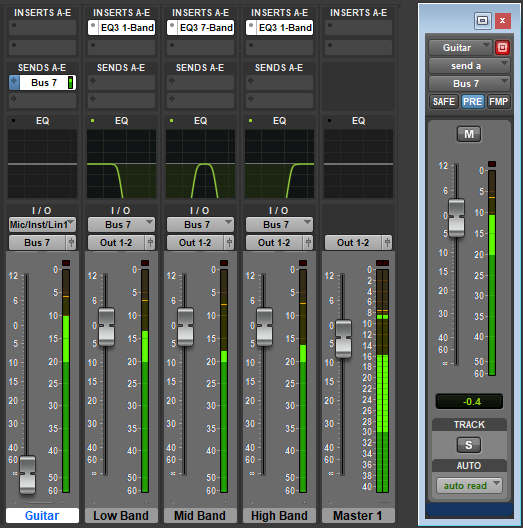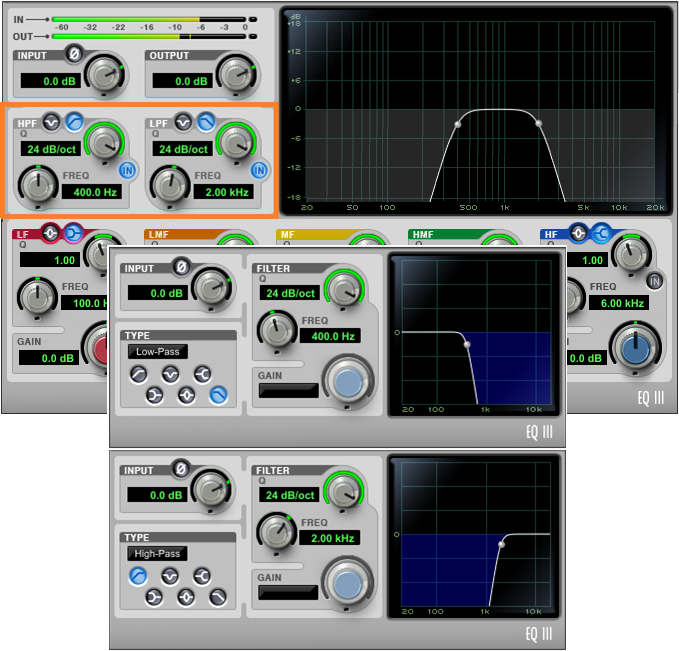The basic version of Pro Tools doesn’t include a frequency splitter, or do multiband processing…but we can fix that!
I’m a big fan of multiband processing (see the section at the end for related articles). Although the plug-in roster included with a basic Pro Tools license doesn’t include a multiband frequency splitter or multiband dynamics, we can make our own (fig. 1).

The guitar track goes to a pre-fader bus, whose output splits to three aux tracks. Each of the three aux tracks has its own EQ—Low Band, Mid Band, and High Band. The EQ outputs will end up going through their own amp sims to create multiband distortion. Fig. 2 shows the EQ3 settings for each band.

Note the following when editing the filters:
- The Mid band uses only the highpass and lowpass filters.
- The Low band’s lowpass frequency and the Mid band’s highpass frequency are the same.
- The High band’s highpass frequency and the Mid band’s lowpass frequency are the same.
- For the most separation among bands, set all Q controls to 24 dB/octave. For less separation, set all Q controls to 6 dB/octave.
- Because of the filtering, each EQ’s output is relatively low. If the EQs feed level-sensitive effects, like compressors or amp sims, either you’ll need to feed more level into the filters by turning up the bus level, or increase the input gain of subsequent effects.
And now you can do multiband processing in Pro Tools, even if you have the basic version.
RELATED ARTICLES
Easy Multiband Processing in Ableton Live
